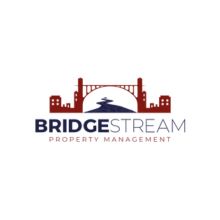If you’ve seen the phrase “owner statement” and felt a little unsure of its meaning, consider this your Marauder’s Map for running rental properties efficiently.
For Dayton landlords, understanding these financial documents isn’t just smart; it’s essential for managing rental income, controlling expenses, and staying on track toward your financial goals.
Think of owner statements as your investment property’s financial health report card.
They help you stay organized, informed, and prepared for both challenges and opportunities.
What Are Owner Statements?
Owner statements are detailed financial summaries provided by property managers or property management companies.
They break down your property’s financial performance, highlighting critical elements like gross income, operating expenses, and net income.
These reports provide clear insights into income and expense categories, making them indispensable for property owners managing rental properties or commercial investments.
Components of a Monthly Owner Statement
A typical monthly owner statement includes several components:
Rental Income – This is the total income collected from rent payments, late fees, and other income sources. It’s the lifeblood of your property’s cash flow.
Operating Expenses – Here, you’ll find expenses related to property taxes, insurance premiums, maintenance costs, and management fees.
Net Operating Income (NOI) – By subtracting operating expenses from gross income, the statement reflects the property’s profitability.
Why Financial Management Matters
Accurate financial management ensures you remain on top of total income and expenses. By tracking these metrics, you can align your business decisions with economic goals.
Regularly reviewing owner statements provides professional guidance, helping you assess your property’s profitability and identify opportunities for tax benefits or expense management.
Income and Expense Categories
Your financial reporting must classify income and expenses effectively. Categories often include rental income, property taxes, mortgage interest, and maintenance costs. How you manage these operating expenses ultimately determines your property’s profitability. Regular updates allow you to stay informed about fluctuations and patterns in cash flow.
Tools for Financial Reporting
Leveraging property management software can make a world of difference in analyzing financial data. Beyond providing instant access to owner statements, these tools offer detailed breakdowns of your property’s performance. They simplify income tracking, ensure accurate financial records, and save you time during tax season.
Decision-Making Tools for Future Planning
Owner statements don't just reflect the past; they guide the future. Use financial information to make informed decisions about rental rates, property improvements, or even expanding your portfolio. Monitoring market trends allows you to adjust for shifting rent prices or new property management strategies.
Enhancing Property Value
Tracking financial data over time helps you identify areas for improvement. Whether it's upgrading the property to attract higher rents or revising lease agreements for better tenant relations, financial reporting gives you the insights needed to boost rental income.
Addressing Common Challenges
Managing a property isn't without its hurdles. Errors in financial data or overlooking maintenance costs can have significant consequences. That's where property management experts step in, providing the expertise needed to overcome these obstacles effectively.
Tax Benefits and Legal Compliance
Owner statements simplify tax preparation by clearly outlining taxable income, deductible expenses, and more. Categories like mortgage interest, property maintenance, and insurance premiums align with IRS requirements, making tax time less stressful for property owners.
Long-Term Financial Goals
Ultimately, financial reporting is about achieving long-term success. By efficiently managing expenses related to tenant relations, property value, and security deposits, you can enjoy passive income while protecting your investments against market volatility.
Boost Profits with Bridgestream's Expert Property Management
For real estate investors, understanding property management fees is crucial to optimizing your rental income and streamlining your operations.
At Bridgestream Property Management, we offer unparalleled expertise in Dayton, providing the tools and support needed to simplify property management while maximizing your returns.
Partner with us today and take the next step toward stress-free, profitable property ownership.
FAQs
1. Why are owner statements important for Dayton landlords?
Owner statements provide a clear overview of your property's financial health, helping you track rental income, expenses, and profitability. They also ensure better economic management and informed decision-making.
2. How often should landlords review their owner statements?
You should review owner statements monthly to stay up to date on your property's financial performance. Quarterly and annual reviews also help you track long-term trends.
3. Can property management experts help improve financial reporting?
Absolutely. Property management experts work with tools and strategies that ensure your financial data remains accurate, accessible, and actionable. They can also help you optimize expenses and maximize returns.
Owner statements may seem like back-office paperwork, but they're vital tools for securing long-term success. Use these insights to stay ahead of the game in Dayton's competitive rental market.
Other Resources:
Transform Your HOA with Professional Management Services in Dayton



